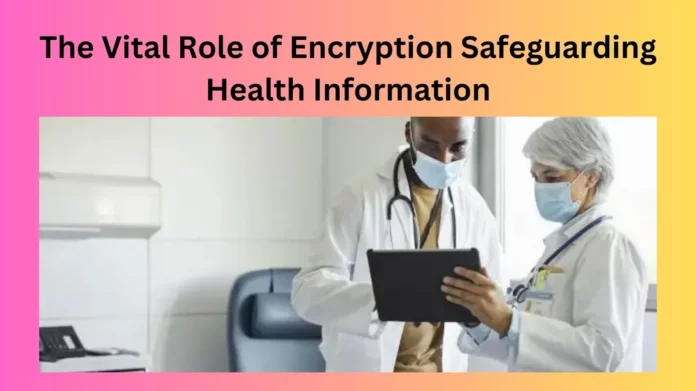In the age of digital healthcare, protecting sensitive patient data is paramount. From medical histories to payment information, healthcare organizations handle a treasure trove of personal details. Yet, with the convenience of digital records comes the risk of breaches and unauthorized access. Here’s where encryption steps in as a crucial safeguard, ensuring that patient data remains secure from prying eyes. Let’s delve into why encryption holds such vital importance in the realm of healthcare data protection.
What is Encryption?
Encryption serves as a virtual lockbox for data, scrambling information into an unreadable format using algorithms. Think of it as translating sensitive data into a secret language that only authorized parties possess the key to decipher.
The Role of Encryption in Healthcare
In the healthcare sector, encryption acts as a shield, safeguarding patient records, diagnoses, and treatments from unauthorized access. It ensures that even if data is intercepted, it remains indecipherable to malicious actors.
Compliance Requirements and Encryption
Government regulations such as HIPAA (Health Insurance Portability and Accountability Act) mandate the use of encryption to protect patient information. Failure to comply can result in hefty fines and tarnished reputations for healthcare organizations.
Encrypting Data at Rest and in Transit
Data encryption isn’t limited to just storing records securely. It also extends to the transmission of data between devices and networks. Whether it’s being stored on a server or sent via email, encryption ensures that patient data remains safeguarded at every stage.
Benefits of Encryption in Healthcare
Preventing Unauthorized Access
By encrypting sensitive data, healthcare providers thwart unauthorized access attempts, safeguarding patient privacy and confidentiality.
Mitigating Data Breach Risks
Encryption serves as a crucial line of defense against data breaches, making it significantly harder for hackers to decipher stolen information.
Building Patient Trust
When patients know that their personal health information is encrypted and secure, it fosters trust in healthcare providers and strengthens the doctor-patient relationship.
Enhancing Regulatory Compliance
Adhering to encryption standards not only protects patient data but also ensures compliance with regulatory requirements, avoiding costly penalties and legal ramifications.
The Future of Encryption in Healthcare
As technology continues to evolve, so too will the methods used by cybercriminals to exploit vulnerabilities. Encryption must remain at the forefront of healthcare data protection strategies, adapting to emerging threats and ensuring the continued safety of patient information.
Conclusion
In an era where data breaches and cyber threats loom large, encryption emerges as a beacon of hope in safeguarding sensitive healthcare information. By employing robust encryption measures, healthcare organizations can not only protect patient data but also uphold the trust and integrity of the healthcare system as a whole.
FAQs
Q1: Is encryption a legal requirement for healthcare organizations?
A1: Yes, encryption is mandated by regulations such as HIPAA to protect patient information and ensure compliance.
Q2: How does encryption differ from other security measures?
A2: Encryption involves scrambling data into an unreadable format, while other security measures focus on preventing unauthorized access through firewalls and access controls.
Q3: Can encrypted data be decrypted?
A3: Encrypted data can only be decrypted by those possessing the encryption key, making it virtually impossible for unauthorized parties to decipher.
Q4: Does encryption slow down data access and transmission?
A4: While encryption adds a layer of security, modern encryption methods are designed to minimize any impact on data access and transmission speeds.
Q5: Can encryption guarantee 100% protection against data breaches?
A5: While encryption significantly reduces the risk of data breaches, no security measure can offer absolute certainty. However, it remains a crucial component of a comprehensive cybersecurity strategy.















